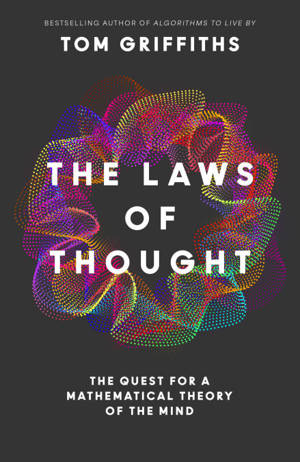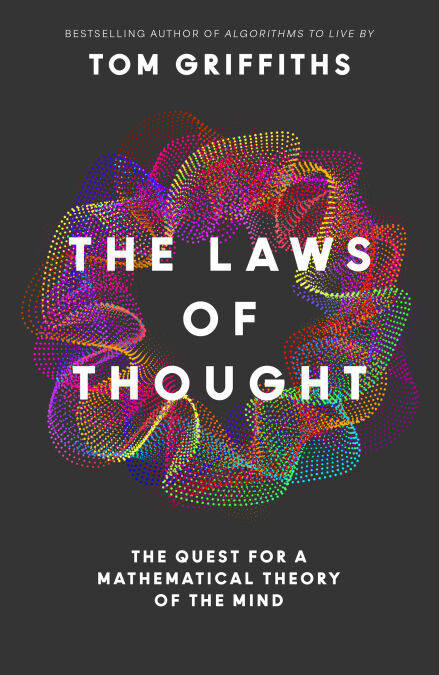
- Afhalen na 1 uur in een winkel met voorraad
- Gratis thuislevering in België vanaf € 30
- Ruim aanbod met 7 miljoen producten
- Afhalen na 1 uur in een winkel met voorraad
- Gratis thuislevering in België vanaf € 30
- Ruim aanbod met 7 miljoen producten
Zoeken
The Laws of Thought E-BOOK
The Quest for a Mathematical Theory of the Mind
Tom Griffiths
E-book | Engels
€ 27,20
+ 27 punten
Uitvoering
Omschrijving
From the coauthor of Algorithms to Live By, an exploration of the quest to use mathematics to describe the ways we think, from its origins three hundred years ago to the ideas behind modern AI systems and the ways in which they still differ from human minds.
Everyone has a basic understanding of how the physical world works. We learn about physics and chemistry in school, letting us explain the world around us in terms of concepts like force, acceleration, and gravity–the Laws of Nature. But we don't have the same fluency with concepts needed to understand the world inside us–the Laws of Thought. While the story of how mathematics has been used to reveal the mysteries of the universe is familiar, the story of how it has been used to study the mind is not.
There is no one better to tell that story than Tom Griffiths, the head of Princeton's AI Lab and a renowned expert in the field of cognitive science. In this groundbreaking book, he explains the three major approaches to formalizing thought–rules and symbols, neural networks, and probability and statistics–introducing each idea through the stories of the people behind it. As informed conversations about thought, language, and learning become ever more pressing in the age of AI, The Laws of Thought is an essential read for anyone interested in the future of technology.
Everyone has a basic understanding of how the physical world works. We learn about physics and chemistry in school, letting us explain the world around us in terms of concepts like force, acceleration, and gravity–the Laws of Nature. But we don't have the same fluency with concepts needed to understand the world inside us–the Laws of Thought. While the story of how mathematics has been used to reveal the mysteries of the universe is familiar, the story of how it has been used to study the mind is not.
There is no one better to tell that story than Tom Griffiths, the head of Princeton's AI Lab and a renowned expert in the field of cognitive science. In this groundbreaking book, he explains the three major approaches to formalizing thought–rules and symbols, neural networks, and probability and statistics–introducing each idea through the stories of the people behind it. As informed conversations about thought, language, and learning become ever more pressing in the age of AI, The Laws of Thought is an essential read for anyone interested in the future of technology.
Specificaties
Betrokkenen
- Auteur(s):
- Uitgeverij:
Inhoud
- Aantal bladzijden:
- 336
- Taal:
- Engels
Eigenschappen
- Productcode (EAN):
- 9780008711504
- Verschijningsdatum:
- 11/02/2026
- Uitvoering:
- E-book
- Beveiligd met:
- Adobe DRM
- Formaat:
- ePub

Alleen bij Standaard Boekhandel
+ 27 punten op je klantenkaart van Standaard Boekhandel
Beoordelingen
We publiceren alleen reviews die voldoen aan de voorwaarden voor reviews. Bekijk onze voorwaarden voor reviews.







